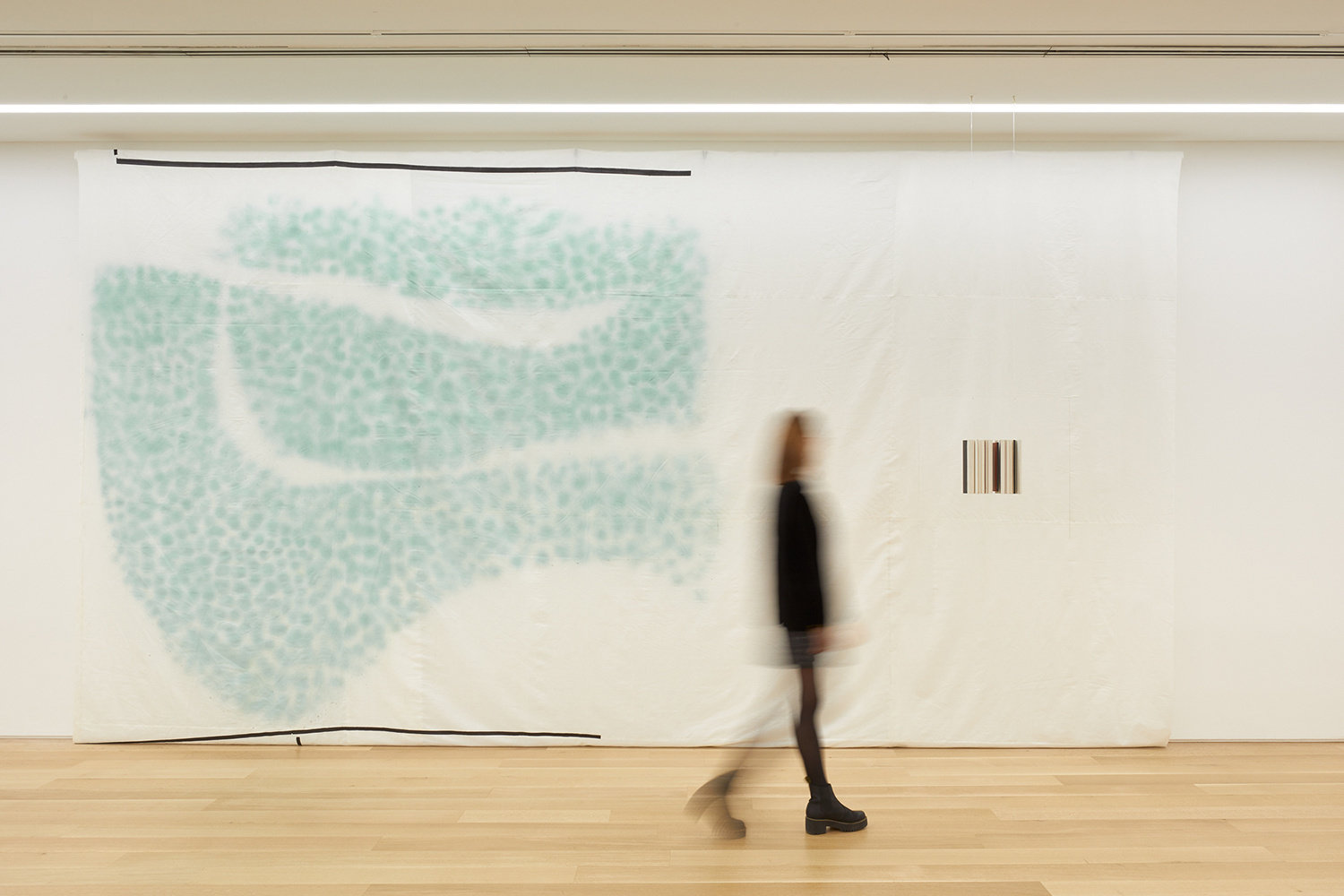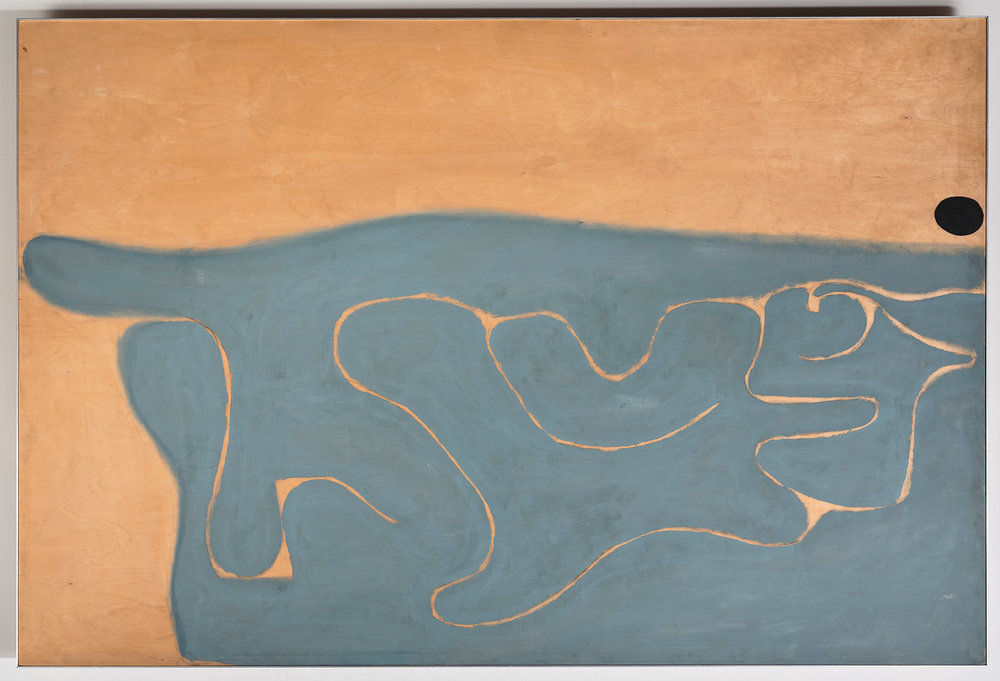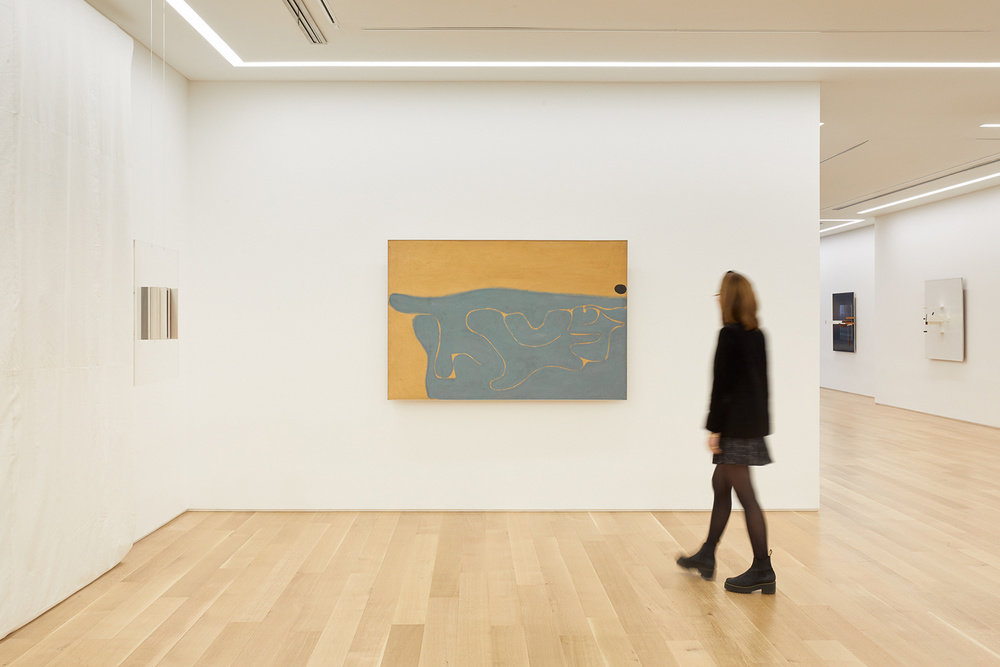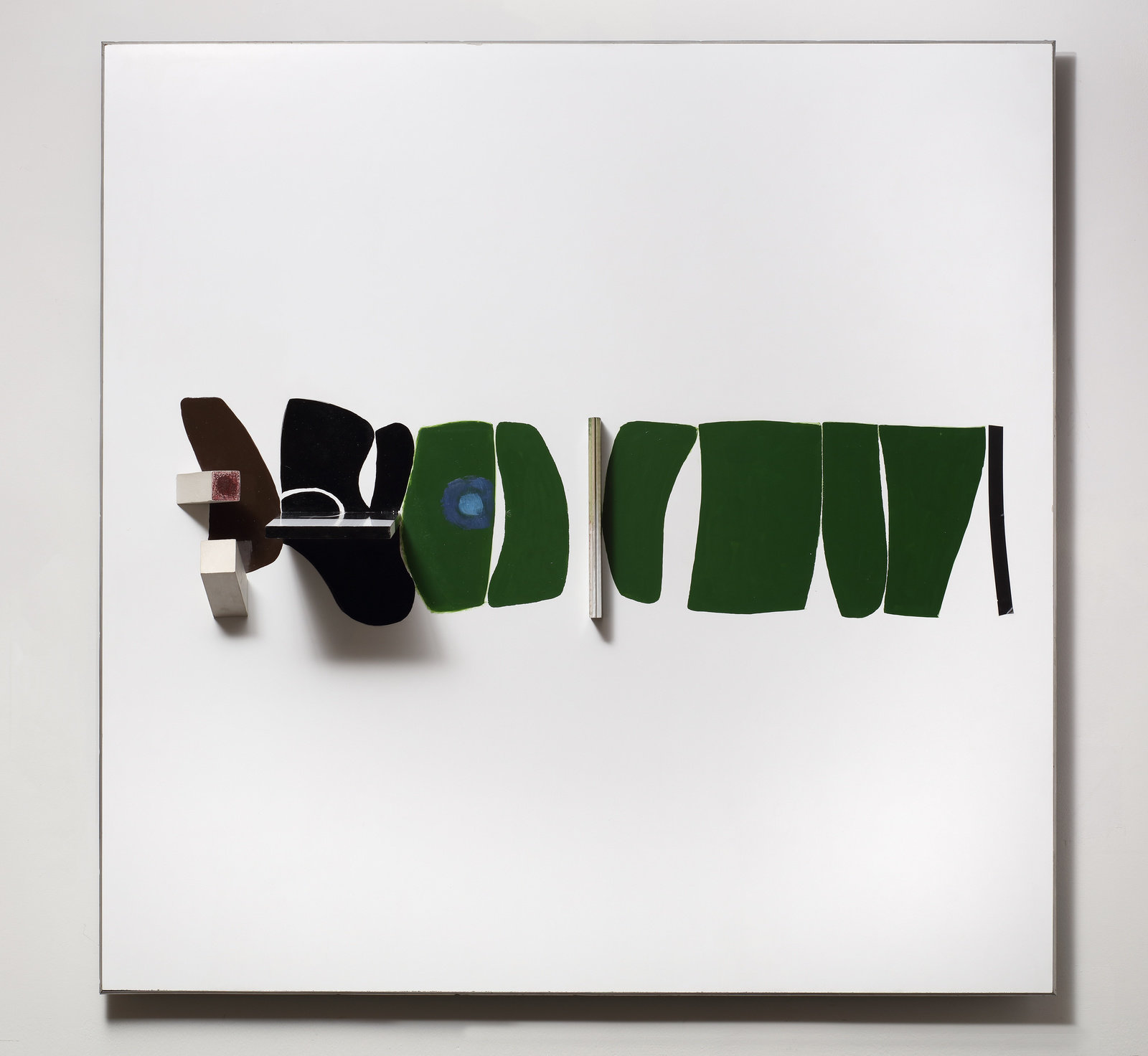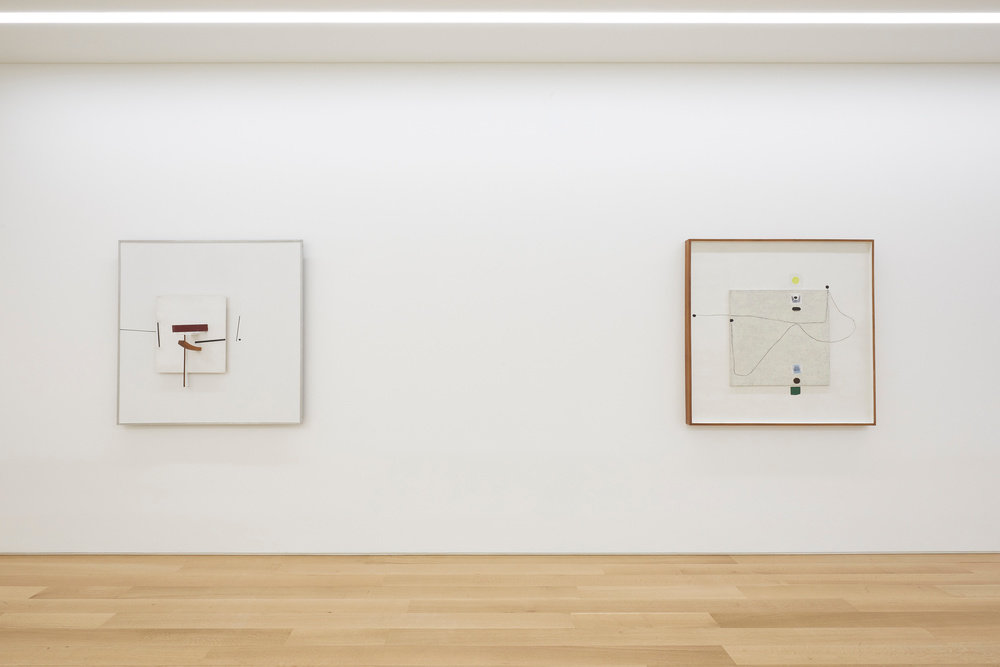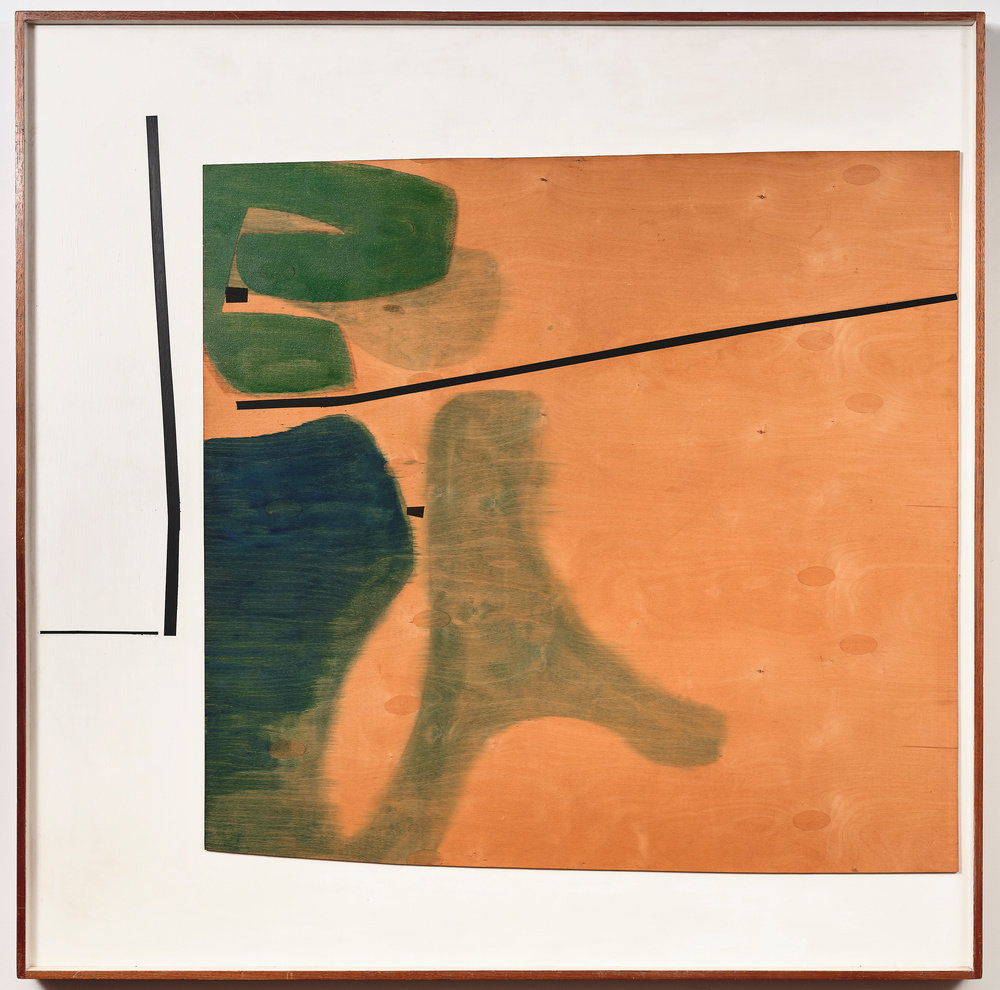Marlborough is pleased to present an exhibition of the work of one of the most prominent figures of post-war British art and architecture, Victor Pasmore (1908-1998).
The exhibition revisits abstract works shown in Pasmore’s lauded 1965 retrospective at the Tate, as well as others created in the years immediately prior to and after the show, illuminating a crucial stage in the artist’s long career. This is a unique chance to view works unseen by the public since 1965, including a mural painting on linen that Pasmore created on-site especially for the Tate exhibition. While it is listed in the catalogue raisonné, the mural was believed to have been destroyed after the exhibition and was only rediscovered in 2018.
Born in Surrey, UK, Pasmore’s early lyrical landscapes and sensitive approach to figurative painting soon earnt him a reputation as one of the outstanding painters of his generation. However, this traditional style of painting was later superseded by his abstract paintings, collages and rigorously constructed reliefs, such that he is now best known for pioneering the development of abstract art in Britain. In the 1960s, his geometry softened and he introduced more painterly, natural forms and curves into his work. Often conveyed through the use of new techniques such as sponge and spray painting, Pasmore also experimented with a more vibrant colour palette in his output from this decade. Pasmore holds a unique place in the canon of British art as his work reflects and anticipates the changes that occurred in art and art practice across the twentieth century, leading him to become one of the foremost exponents and theorists of abstract art. His work, in all its diversity, remains challenging and relevant in the contemporary landscape; the gallery is excited to play a part in that story through this exhibition.
The exhibition is accompanied by a fully illustrated catalogue with text by Chris Stephens, Director of the Holburne Museum, Bath.
Pasmore was educated at Harrow School where his interest in painting began. From 1927, he studied under A.S. Hartrick at the Central School of Arts and Crafts, during which time he discovered the revolutionary School of Paris. In 1933, he was elected as a member of the London Artists’ Association headed by Roger Fry and Duncan Grant. Pasmore, William Coldstream and Claude Rogers formed an independent private art school, The Euston Road School, in 1937. In 1954 he was appointed Consulting Director of Urban Design for the South West Area, Peterlee New Town in Country Durham.
Pasmore held positions as Director of Painting at Camberwell School of Art and Head of the Department of Painting at King’s College Durham University, as well as lecturing at Harvard University. He was awarded Honorary degrees from the Royal College of Art and the University of Warwick and was presented with a C.B.E in 1959. He became a Trustee of the Tate Gallery in 1963-4 and was elected a Royal Academician in 1983. Pasmore’s work can be found in major museums and public collections worldwide including: Tate Britain (UK), Royal Academy of Arts (UK), Museum of Modern Art (USA), The British Council (UK) and Yale Center for British Art (USA) amongst others.
Works
